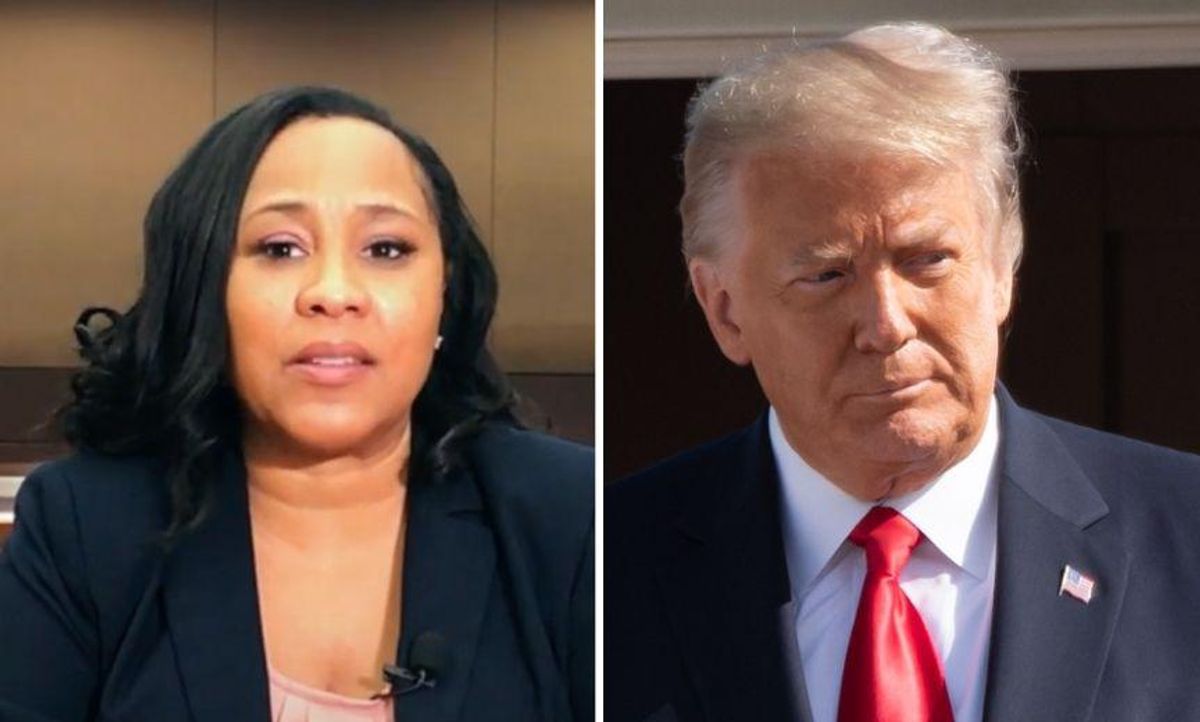Many were surprised to learn that Fulton County District Attorney Fani Willis, who is investigating election interference by Donald Trump in the state of Georgia, hired a renowned racketeering expert, Atlanta lawyer John Floyd, to help with her case.
The move was unusual because federal RICO law requires some kind of underlying criminal act in which the alleged enterprise engaged. Such crimes usually involve drugs, money laundering, gambling, or physical harm to others, none of which is at issue in this case.
But this is a potential state RICO action that Willis may bring, and Floyd is known for having written a national guide on prosecuting state racketeering cases.
That matters here because the federal RICO statute lacks something that Georgia specifically lists as prohibited criminal conduct under its RICO law: the making of false statements.
Section 10-5-54 of the Georgia Code (2010) states:
"It is unlawful for a person to make or cause to be made, in a record that is used in an action or proceeding or filed under this chapter, a statement that, at the time and in the light of the circumstances under which it is made, is false or misleading in a material respect…."
Thus, under GA law, says Cathy Cox, the dean of the Mercer School of Law in Georgia and Georgia's former Secretary of State:
"If Donald Trump engaged in two or more acts that involve false statements—that were made knowingly and willfully in an attempt to falsify material fact, like the election results—then you can piece together a violation of the racketeering act."
Admittedly, Willis will face a high hurdle.
Willis will have to prove that Trump knew that his claims of election fraud were false when he made them, or he won't have the required state of mind for the violation to stick.
Trump is generally fairly careful to pepper even his veiled threats with enough plausible deniability to cover his tracks. His lawyers will point to the many instances where Trump was adamant on the phone with Brad Raffensperger, the Georgia Secretary of State, that the election was stolen from him illegally and argue that he clearly did not know the statements were false as he was making them. (The same caution may not be true for Trump's associates, including Rudy Giuliani, who is a lawyer, who saw the evidence, and who then nevertheless made several false statements to Georgia officials. Would Rudy flip on Trump if leaned on?)
But the infamous recorded Raffensperger call isn't the only evidence now before Willis. A bombshell investigative report by the Wall Street Journal, which dropped just this week, has unearthed a second recorded conversation between Donald Trump and a Georgia official, in this case the Chief Investigator of the Georgia Secretary of State's office.
In that call, made in December of 2020, Trump urged the investigator to look for fraud during an audit of mail-in ballots in a suburban Atlanta County. "When the right answer comes out, you'll be praised," Trump intoned, after repeatedly saying that "something bad happened."
There may be further evidence coming from other officials whom the Trump campaign may have leaned on. If Willis can prove Trump and his cohorts intended to make false statements—basically that he and his campaign set out to lie or mislead in order to convince officials to throw the election Trump's way—they each could face a statutory minimum of a five-year sentence, or as much as 20 years, though that is highly unlikely.
But what are the real chances of conviction here?
On the one hand, while Trump may have violated the letter of the law, the state RICO statute covering false statements was intended to stop the deceptive marketing of securities, and not really to cover false statements made to election officials. It's very possible a judge could rule this is a stretch too far. It's also possible, as discussed above, that there simply isn't enough evidence to show Trump intended to lie—or that he lies so much he doesn't even know when he's lying. His attorneys will muddy the waters here easily.
On the other hand, Willis has experience handling complex state RICO claims, having prosecuted a case under Georgia's racketeering law against twelve former teachers, principals and administrators accused of inflating scores on standardized tests in order to receive promotions and bonuses. After a lengthy investigation and trial, eleven were convicted, and some received prison time.
Willis's newly hired RICO expert, John Floyd, was on the education fraud case with her. "I've worked on some pretty intense cases over the years," said Floyd. "But as far as duration and complexity, that would be hard to match."
Willis's RICO case against Trump likely would handily beat that.
 SECONDNEXUS
SECONDNEXUS percolately
percolately georgetakei
georgetakei comicsands
comicsands George's Reads
George's Reads








